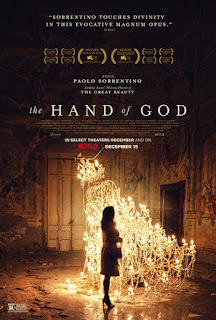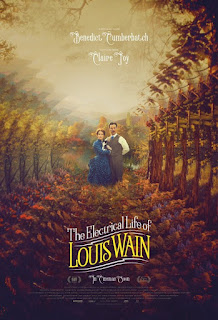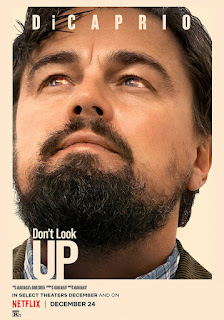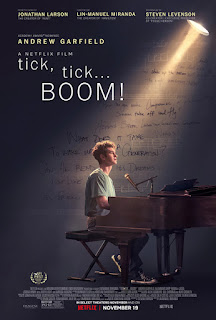Movie Name: E stata la mano di Dio/The Hand of God
Year of Release: 2021
Director: Paolo Sorrentino
Starring: Filippo Scotti, Toni Servillo, Teresa Saponangelo, Marlon Joubert, Luiza Ranieri, Renato Carpentieri, Massimiliano Gallo, Betty Pedrazzi, Enzo Decaro, Sofya Gershevich, Lino Musella, Biagio Manna
Genre: Drama
Score out of ten (whole numbers only): 7
Watch it on Netflix
Year of Release: 2021
Director: Paolo Sorrentino
Starring: Filippo Scotti, Toni Servillo, Teresa Saponangelo, Marlon Joubert, Luiza Ranieri, Renato Carpentieri, Massimiliano Gallo, Betty Pedrazzi, Enzo Decaro, Sofya Gershevich, Lino Musella, Biagio Manna
Genre: Drama
Score out of ten (whole numbers only): 7
Watch it on Netflix
Synopsis and Review:
Director Paolo Sorrentino has returned, after working on his mini series "The Young Pope/The New Pope" and the films "Loro" (focused on the life of Silvio Berlusconi). The film which takes place in the 1980s, focuses on the life of young Fabietto, who is still in high school, but is focused on soccer, as his most of his hometown of Napoli. The film follows the every day adventures of his extended family, including his loving parents and siblings, but also his uncles and aunts, cousins, grandmother, all of whom have their own dramas taking place. His father and himself, alongside most of the country itself, are very focused in figuring out if Maradona is indeed coming to play soccer to Napoli or not, since they believe him to be touched by the hand of God. When that event happens in 1984, it's a general jubilation, even if Fabietto soon realizes that his idolized father isn't as perfect as he made him up to be. Following a dramatic incident, Fabietto and his family are left wondering what they want to do with their lives, and how they can continue on living.
"The Hand of God" has the ability to immediately invite us to the nest of a close knit family, one where the ties that keep those individuals together are clearly visible. Paolo Sorrentino, who is clearly telling a very autobiographical story, is also very successful at portraying/illustrating life in Italy, specifically in Napoli in the mid 80s, where everything revolved around soccer, the never ending Summers where people went to the beach, danced away and generally speaking, just idly watched life serenely move. It's a film that also carries with it the nostalgia of making films themselves, in this particular case the great Fellini who also influences the narrative being told (and towers over everything in Italy, as far as cinema is concerned of course). As the stories and relationships between the family members become clearer, Sorrentino also demonstrates how youth is sometimes easily influenced, but also easily broken hearted. It's a film that is peppered with humor, tenderness, lust and warmth, that somehow walks a fine line between being very authentic, but also somewhat idealized, though it always remains vibrant and heartfelt. The cast is uniformly excellent, with highlights going to Filippo Scotti and Toni Servillo. The cinematography from Daria D'Antonio is solid as is the music from Lele Marchitelli. Worth watching.



























